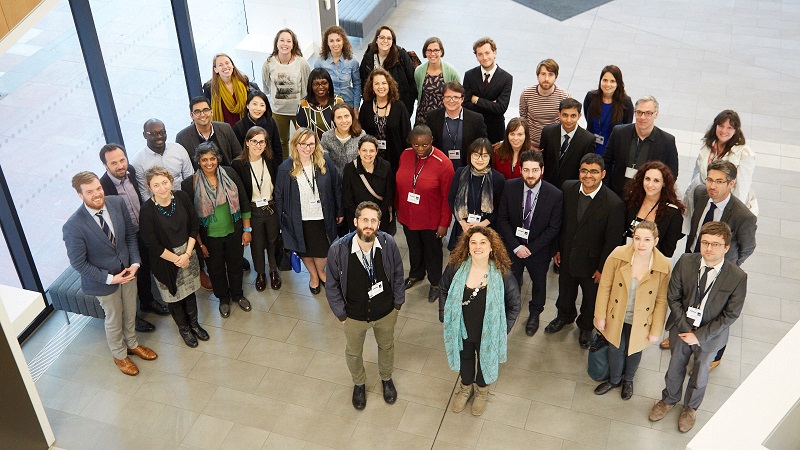V Strathclyde Postgraduate Colloquium on Environmental Law and Governance
See also Flyer V Postgraduate Colloquium on Environmental Law and Governance 2017 and the Colloquium Programme and Abstracts Booklet
On 4th May, fifteen selected PhD researchers coming from leading European universities delivered a presentation on contemporary issues of environmental law and governance at SCELG Postgraduate Colloquium, which received a record number of applications. Around fifty participants attended the event. Discussions were chaired by SCELG members and enriched by the feedback of guest discussants (Prof Alistair Rieu-Clarke, Chair in Law in Northumbria University's School of Law; Dr Olivia Woolley, Lecturer in the School of Law, University of Aberdeen; Dr Apolline Roger, Lecturer in the School of Law, University of Sheffield; and Prof. Jeremie Gilbert, Professor of International and Comparative, University of East London Law School).
The colloquium was organised in five panels:
- “Environmental Regulation” offered innovative perspectives on the legal regulation of transboundary natural resources, transboundary aquifers and onshore hydraulic fracturing;
- “Cost, Benefit and Risks” focused on environmental protection issues in particular contexts, focusing on the EU agricultural sector, the role of courts in environmental protection and industrial pollution, and the contingent valuation of natural resources by courts in the US;
- “International Law of the Marine Environment” addressed questions such as the role of scientific advisory bodies in shaping the law of the sea, the risks posed by seismic surveys on the protection of the marine environment, and the regulation of offshore energy activities and underwater noise;
- “Energy and Climate Law” combined analyses on domestic tools of environmental governance – focusing on Dutch energy law and Swedish energy tax legislation – with a transnational perspective on sustainable energy production; and
- “Environment and Human Rights” highlighted topical issues regarding the protection of indigenous peoples and local communities through legal mobilization; their rights in the context of bio-based innovation; and on conflicts between environmental protection and human rights.
The colloquium also featured its inaugural poster session.
You can find out more information about our PhD programme here and about our visiting PhD scholars’ programme here.

_265x120.jpg)
